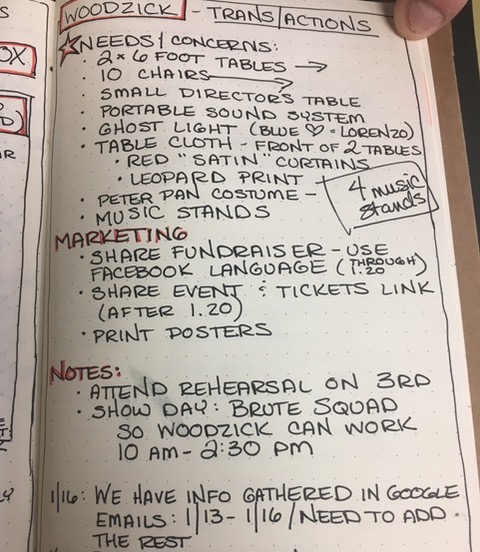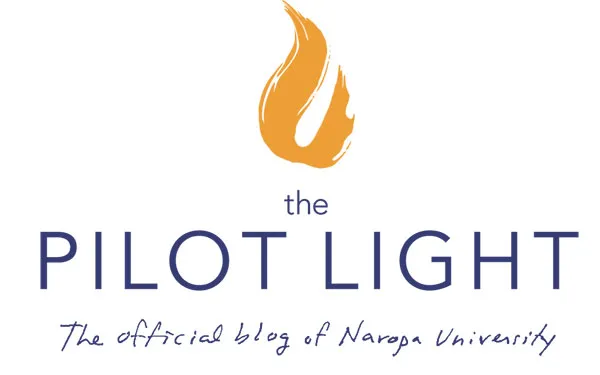
By K. Woodzick
I started the podcast on a whim. I was writing about local artists for Whidbey Life Magazine and they assigned me a story on a local director who I knew to be particularly verbose.
Instead of taking handwritten notes, I decided to record the conversation on my phone. When I listened back to it, I thought to myself, “Sheesh, if he didn’t say ‘off the record’ so much, this would basically be a podcast.”
I then started researching the equipment and online platform I would need to produce a podcast on a regular basis. That was over two years ago. As I write this blog post, the Theatrical Mustang Podcast has produced 116 episodes which have been downloaded over 10,000 times.
The name came from a compliment/observation that a colleague once offered to me through a mutual friend: “That Woodzick…they’re a theatrical mustang of sorts.”
What exactly is a Theatrical Mustang, you may ask? To me, it’s someone who has a clear sense of the theatrical work they want to put out into the world and doesn’t ask permission from others to do so.
Before coming to Naropa University’s MFA: Contemporary Performance program, I found myself drawn to productions for the sake of pure enjoyment: I loved being in musicals and plays and reveling in that sense of temporary community.
The transformation that has occurred for me within this program is having a much more finely-honed sense of the work I want to put into the world, why I want to do so, and how to do in a self-sufficient and professional manner.
Naropa’s contemplative approach makes you not only inquire into your academic studies, but also into your personal journey. They are inextricably intertwined. So when it came time to choose a thesis project, it was absolutely clear to me that I wanted to develop a full-length script that sought to answer the question, “How can we make the theatre industry and training programs more inclusive of gender diversity?”
I started by interviewing transgender and gender non-conforming theatre artists, which lead me to discover Ayla Sullivan, a student in the BFA Theatre program at CU Boulder and the current reigning Denver Youth Poet Laureate. I asked them to help write the piece as well as perform in it.
I then submitted the pages we had to the Theatre Made in Boulder Festival application, which selected the script-in-progress as one of their festival staged readings.
Next came my mentor: Leigh Fondakowski, who was the head writer for The Laramie Project. For someone exploring the form of documentary theatre as well as LGBTQ+ advocacy, I was thrilled to have her on board.
And then we wrote pages and cast and rewrote those characters and recast. The reading was originally set to be produced in the Carsen Theatre of Dairy Arts Center, but as we sold out the venue more than three weeks before the show, the festival was kind enough to move us into a larger space.

So how did this play come from a podcast? In the dozens of interviews I’ve conducted, I’ve had the honor of cultivating meaningful connections with artists and activists from all over the country. The power of a long-form interview is that it connects us much more deeply than the sound bites we are so used to hearing in our current media landscape.
When you sit across the table from someone and ask them about why they love their craft, how they’ve become the artist they are today, what advice they have for other artists and activists—this creates a concentrated connection that you are then able to share with the world at large. To me, maintaining a podcast is very similar to cultivating a meditation practice.
There’s a line in the play that Ayla wrote:
“Sometimes, being trans and committing to your visibility feels like an introduction that never ends.”
I am forever grateful to the transgender theatre artists who have come and come out before me. Their existence has made my life and artistry seem infinitely more possible.
It’s a common practice to map out the thought process and structure for a play. As Ayla and I worked into the night in one of the studios at the Nalanda Campus, there was a phrase that they wrote on the board that has stayed with me. I’ll share it here to close this blog:
“It’s not about coming into yourself—it’s about choosing to stay.”
TRANS/ACTIONS will be performed as a staged reading as part of the Theatre Made in Boulder Festival on Sunday, February 4 at 12:00 PM. The suggested donation is $10, but audience members may choose to waive that donation and select a complimentary ticket at check-out if the price is an impediment. Tickets: http://bit.ly/2BnGu7c


